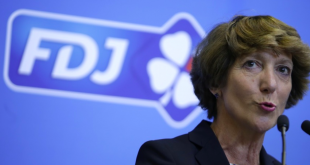Regulus Partners, the strategic consultancy focused on international gambling and related industries, gives an insight into some of the key developments in the gambling industry as part of its ‘Winning Post’ column.
UK: advertising regulation – tough love
Amongst the organisations likely to lose out if ever a ban on gambling adverts is instituted is the fines department at HM Government. This week on Valentine’s Day, the government raked in £350,000 in fines from GVC at the same time that the Advertising Standards Authority potentially made such fines more likely in the future.
The fine was levied in respect of repeated breaches of social responsibility codes in relation to the advertising of free bets. In addition, GVC received a warning for not applying for a Personal Management Licence for its marketing director – a warning that will stay on its file for consideration should the company fall foul of regulations again. While always serious, GVC’s UK regulatory risk profile is likely to be under even greater scrutiny currently as it seeks to acquire the UK’s largest online gaming business (#4 overall).
The announcement raises a couple of interesting questions, including why in this case a fine was levied (in the past, the Commission has preferred voluntary settlement) and whether GVC should have disclosed the fact that it was undergoing a licence review (as 888 did when it faced the scrutiny of the Commissioners last year). The identity of the five online operators facing licence review in relation to anti-money laundering and social responsibility failure is also obscure.
Also on Valentine’s Day, the Advertising Standards Authority sent its tough love to the gambling industry with updated standards designed to discourage the promotion of repetitive or impulse gambling (no more “bet now!”, to highlight what is probably the UK’s most ubiquitous, successful and longest running betting ad campaign), and to require operators to make material terms and conditions attached to free bets or bonuses clearly visible to the consumer.
Regulators often have to walk a tightrope between principle and prescription. Overly precise regulations can become outmoded and prone to circumvention or unintended consequences; while principles often require subjective judgement (and a degree of trust between the regulator and the regulated), which may lead to ambiguity. While the ASA has been very clear about certain matters, grey areas persist. Operators will need to tread carefully and engage closely with the regulatory community as they work out exactly where the borders have been redrawn.
In the meantime, it seems likely that the steady drip of fines and voluntary settlements will continue.
US: sportsbetting regulation – state of play
Progress is continuing with State-by-State US regulation of sportsbetting in the hope of a favourable PASPA decision in the spring. Encouragingly for operators, Iowa (pop. 3m) has rejected the sports leagues proposal 1% handle, though the NBA has by no means given up. The 1% fee has also appeared in draft Missouri (pop. 6m), while Massachusetts (pop. 7m) is debating whether to make temporary DFS legislation permanent and also requesting the study into online betting; perhaps significantly within the context of international sportbetting operator hopes, a pro-DFS Senator explained it was worthy of support as a “homegrown” industry (rather like moonshine).
The latest news points to three key themes. First, the US position is evolving rapidly and stakeholders need to be as prepared as possible (especially in terms of sensibly shaping the dialogue), without over-committing to any assumed outcome. Second, the landscape following a clear overruling of PASPA is likely to be a fragmented and contradictory patchwork, where (rather boring and limited) super-local solutions are likely to trump grand hopes and promises. Finally, we continue to be sceptical that the federal government will necessarily allow such a mess to evolve and anticipate some important caveats to any repeal (potentially evolving into certain permissions, taxes and integrity fees at a federal level).
France: Q4 remote revenue – distorting growth
The domestically regulated French market grew 39% in Q4 to €295m, driven by an 83% increase in sportsbetting (to €163m, 55% mix); horseracing and poker converged at €66m, with the former growing at 6% and the latter an encouraging 8% after years of decline. Significantly, French sportsbetting growth was volume (+32%) as well as margin (+6.4ppts) driven. Unsurprisingly, football was the key driver (turnover +34%, 61% mix), though breakdown by league and sport also confirms the sources of volume growth: Premier League (+53%), LaLiga (+50%) and Serie A (+109%) materially outfperformed domestic leagues (+20%), Champions League (+25%) and Bundesliga (+6%); volleyball and handball also performed strongly (+52% and +60%, albeit at only 1% of turnover each). Poker growth was all tournament-led (+11%, 62% mix), with cash games broadly flat (although with the potential for growth in 2018 with cross-region liquidity sharing: Stars has started and Winamax is entering the Spanish market).
Growth for FY17 was a less strong 18% to €962m, with 35% growth in sports (€472m, 49% mix), 5% growth in horseracing (€245m, 25% mix) and 7% growth in poker (also to €245m). The French market has therefore finished very strongly, but medium-term trends are less impressive. Moreover, very high turnover tax rates deliver a very unattractive betting RTP (81% for 2017 vs. c. 92% in .com / GW-led markets) and casino remains banned. Consequently, the majority of the French online gambling market is very likely to remain black. However, strong sports betting growth and a return to growth in poker demonstrates that an emerging online mass market is less price sensitive (or resourceful in accessing supply) than the traditional heavy user: the French model might work for a large and growing number of players, but it still does not work in capturing the majority of revenue.
Spain: Q4 remote revenue – a marathon not a sprint
The Spanish online market grew 38% in Q4 to €173m, similar growth to France and 84% of the spend per capita. However, the composition of Spanish growth was very different. Sportsbetting growth was ‘only’ 49% to €104m (60% mix), with casino growing at 37% to €49m. Strong casino progress was delivered in a period of high sports margins (benefiting pre-match mix), while Spain’s online product mix is also ‘normalising’, with slots growth to 52% casino mix suggesting more effective channelling as well as underlying growth. Poker also moved into growth: +5% to €16m (9% mix). While still small, bingo also delivered strong growth: +30% to €3m. On an FY basis Spain grew overall revenue by 31% to €562m, with 33% growth in betting (€317m, 56% mix), 39% growth in casino (€185m, 33% mix – including bingo) and 4% growth in poker (€60m, 11% mix).
On the face of it, Spain’s relatively liberal online regime has generated frustrating results relative to the higher spend per head of a highly restricted France (albeit a 38% higher GDP per capita) and a similar one to restricted Portugal. However, with France growing at 18% in 2017 and Portugal’s betting market not growing at all since launch (Q316 – Q317, -26%; Q417 level with Q316), Spain’s broadly based 38% growth suggests significant medium-term divergence driven by a much more effective regulatory model.
Malta: remote regulation – mafia.com?
The MGA is reportedly broadening its investigations into the potential or alleged mafia connections of its Italy-facing licensees (10 licences out of 200). The Italian high-street gambling market has had a long history of mafia connections, and while this is unlikely to affect the majority of businesses (anymore), it has claimed some of the biggest (eg, B Plus: once Italy’s biggest VLT concession). Moreover, since high-street gambling morphed into remote (eg, via CTDs, often Malta-based), the connection has been a hard one to shift and hasn’t always required evidence for politicians and commentators to make some pretty sweeping claims (although there have also been enough cases to provide continuing fire for the smoke).
The danger for businesses with current or even legacy Mafia issues is pretty obvious: getting kicked out of Malta leaves very few tax efficient options within the EU and is likely to jam up banking and payments near fatally regardless of any criminal proceedings. However, there may be a wider issue for Malta-based licensees: this is a recurring stick with which to beat the jurisdiction and responses such as tightening up AML enforcement (just announced) may not be enough if there is an underlying political agenda. The attitude of many of the larger Member States (and EU institutions) to POS regimes is frosty at best, and the irony of a more integrated post-Brexit EU is that it may mean a much tougher one for the ‘EU offshore’ model.
UK: horseracing – The right sort of innovation?
The announcement of plans for a ‘Formula 1’ style competition for horseracing caused much discussion within the industry this week. The brainchild of Jeremy Wray (former Swindon Town FC chairman, and brother of Betfair co-founder Ed) is for 12 ‘blue chip’ company-branded teams to compete in 48 races over 8 weeks during the summer, for £100,000 prizemoney per race. The contest will require one trainer per team, 4 jockeys and 30 horses. It promises to “distance this incredible sport from the public perception that its complicated, elitist recreation inextricably linked to gambling.” While a number of high profile people within the industry have given the idea their approval, the news was greeted largely negatively by racing’s core customer base on social media.
Horseracing has a relatively poor track record when it comes to innovation, not helped by a disparate stakeholder base, a sometimes elitist culture and an often acrimonious relationship with bookmakers – a key conduit to a vital customer-base. However, while efforts to attract “a whole new audience” to the sport, to do so in such disparaging terms to what is a largely successful product and symbiotic relationship (“wewill let betting take a back seat”) is in danger of creating more division than progress, especially if key stakeholders appear to back opinions as well as products. Sometimes big, glitzy innovation works and fresh thinking should always be encouraged, but far more good can be done by inclusively improving the base. These two drivers do not have to be mutually exclusive, but in too many cases they are. Bookmakers have one piece of silver lining to the cloud of distaste: more high-profile 12-runner fields is just what the industry needs…
UK: sports betting integrity – Kindred steps up
Kindred has been announced as the latest member of the Sports Betting Integrity Forum (SBIF), in the same week that it signed an information sharing MOU with the RFU, with whom it also agreed to collaborate on “prevention and educational projects”. These positive steps may have featured among the actions recommended in Kindred’s recent integrity audit carried out by Ethisport. Following that audit, Kindred itself stated that it needed to further improve cooperation between operators, sports regulatory bodies and law enforcement.
Ethisport describes its audit as involving 500 questions, with answers weighted and put through an algorithm to produce a rating. It is not clear how many other operators it has audited, which casts some doubt on the basis on which Ethisport claims that Kindred “leads the pack on sports betting integrity” and is “for sure part of the Top 5 leading betting operators fighting against the manipulations of sports competitions”. However, Kindred has proactively sought out a third party to audit its systems and processes and taken visible steps to strengthen its efforts through collaboration, which should be applauded. With Kindred now among its membership, the SBIF, the UK’s national platform for sports and sports betting integrity, should be more effective to the benefit of all stakeholders.










